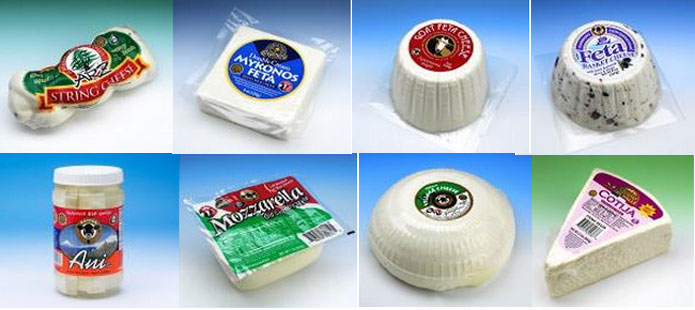New Listeria Outbreak Tied to Soft Cheeses

Two dozen people in nine states have been sickened with the serious foodborne illness listeriosis, likely from eating soft cheeses that were contaminated with bacteria, according to the Centers for Disease Control and Prevention.
All of the patients were infected with one of five rare strains of the bacterium Listeria monocytogenes, the CDC said. Seven of these people became sick this year, but the agency also identified a number of people who were infected with these same strains going as far back as August 2010, for a total of 24 cases. Of these, 21 people needed to be hospitalized, and one person died, the CDC said.
Listeria is particularly hazardous to people with weakened immune systems, including older adults and pregnant women. In the recent outbreak, five patients were pregnant, and one had a miscarriage as a result of the illness, the CDC said. Symptoms of listeriosis can include fever, muscle aches and diarrhea.
Most of the patients reported eating soft cheeses, such as feta, string cheese, nabulsi and ani cheese, in the month before they got sick, and four people reported eating a brand of cheese distributed by the California-based company Karoun Dairies, the CDC said. The company has since recalled some of its cheeses, although none of its products have tested positive for Listeria so far. Consumers should not eat the recalled products, the CDC said.
Fourteen of the Listeria patients lived in California, and there have also been cases in Colorado, Illinois, Massachusetts, Michigan, New York, Ohio, Tennessee and Washington.
The CDC noted that its investigation of the outbreak is ongoing, and that the agency has not definitively confirmed that soft cheeses are the source of the illnesses. [Top 7 Germs in Food That Make You Sick]
Listeria bacteria are commonly found in soil and water, and because they can infect animals without causing symptoms, the bacteria can sometimes contaminate meat and dairy products, the CDC said. If the bacteria get into a food-processing factory, they can live there for years, and unlike many pathogens, Listeria can grow in food kept in the refrigerator, the CDC said.
Sign up for the Live Science daily newsletter now
Get the world’s most fascinating discoveries delivered straight to your inbox.
Earlier this year, Blue Bell Creameries recalled all of its products, including its ice cream and frozen yogurt, because its products were linked to a separate Listeria outbreak that sickened 10 people.
To prevent Listeria infection, the CDC recommended the following tips:
- Eat perishable and ready-to-eat foods as soon as possible.
- Rinse raw vegetables thoroughly before eating them.
- Do not drink unpasteurized milk.
- Heat ready-to-eat foods and leftovers until they are steaming hot.
- People at higher risk of infection, such as pregnant women, should not eat hot dogs, luncheon meats, cold cuts or other deli meats unless they are heated to an internal temperature of 165 degrees Fahrenheit (74 degrees Celsius). They should also not eat soft cheeses, unless the label says its made with pasteurized milk.
Follow Rachael Rettner @RachaelRettner. FollowLive Science @livescience, Facebook& Google+. Original article on Live Science.

Rachael is a Live Science contributor, and was a former channel editor and senior writer for Live Science between 2010 and 2022. She has a master's degree in journalism from New York University's Science, Health and Environmental Reporting Program. She also holds a B.S. in molecular biology and an M.S. in biology from the University of California, San Diego. Her work has appeared in Scienceline, The Washington Post and Scientific American.










